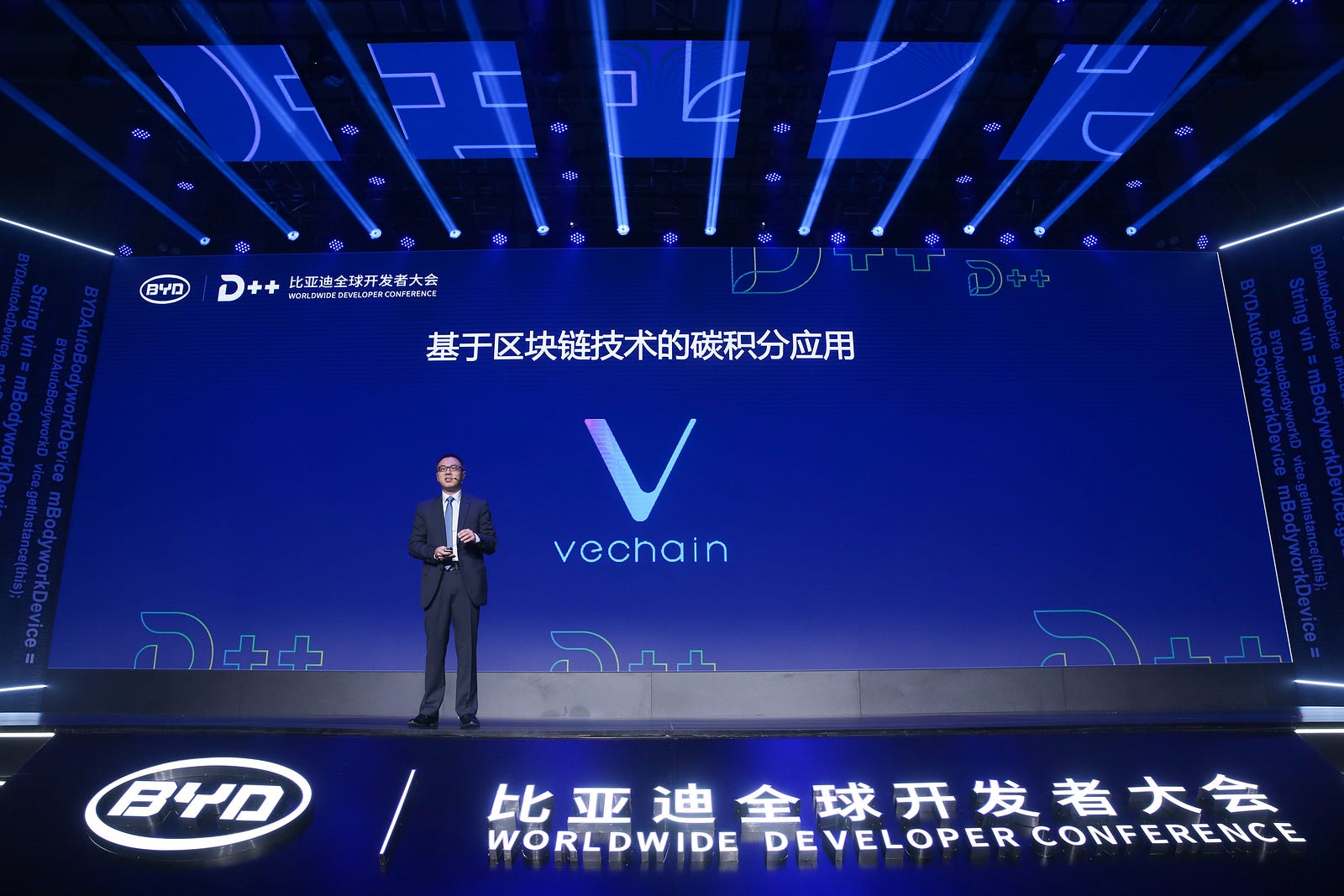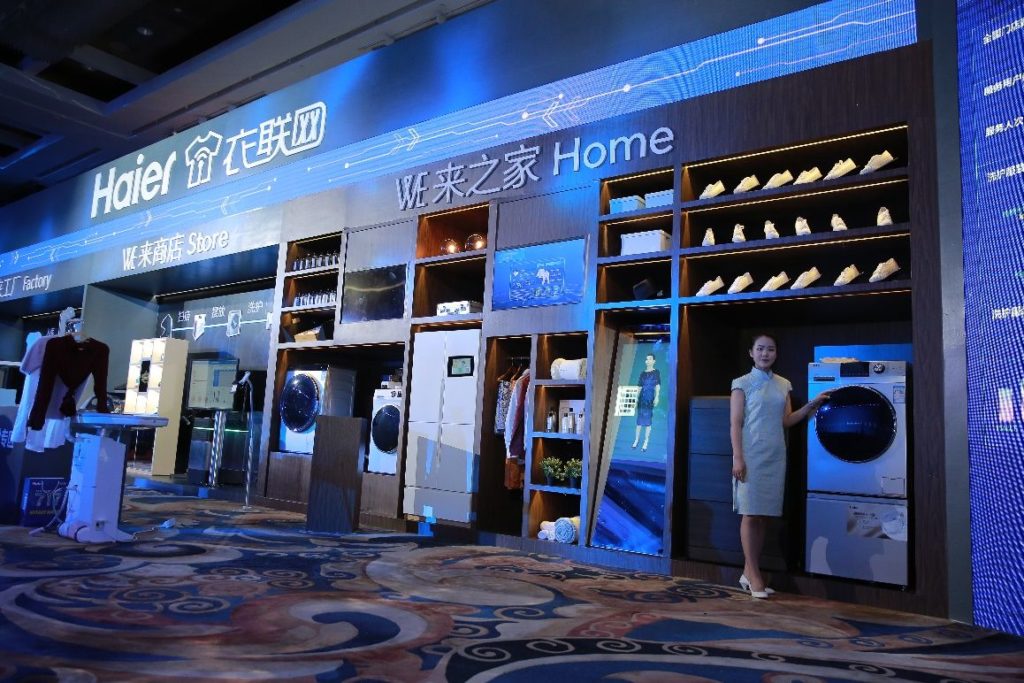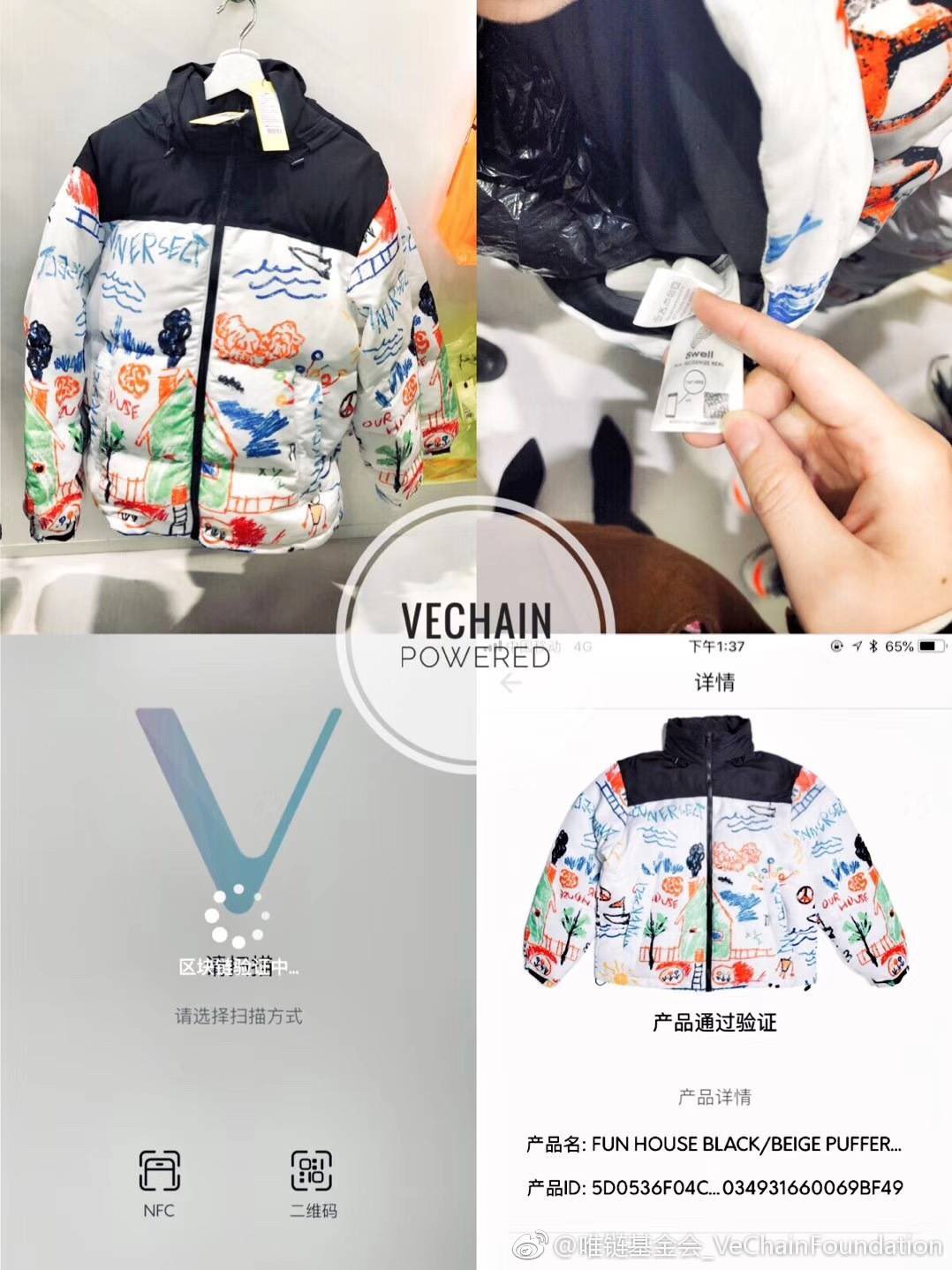How Can Blockchain Incentivize Recycling? DNP Group Collaborate on Eco-Friendly PoC
In an interview with DNP’s Junichiro “John” Yamashita, Lead Researcher for DNP Group, we learned about their recycling initiative developed on the VeChainThor Blockchain.

John from DNP Group discusses how blockchain can be used to encourage sustainable consumption practices.
DNP group is a multinational printing company from Japan. With over 10,000 employees, they have a diverse range of services that includes printing, packaging, decorative materials, electronic components, and information media supplies.
Recently I spoke with John, and he shared his vision for using blockchain for something new: social good. He talked about how DNP’s massive quantity of products and overall size was a major contributor to global waste, inspiring the team to look for innovations that encourage more sustainable waste management. As the manufacturer of around 1/3 of Japan’s plastic bottles, DNP hopes to make a substantial difference in consumer’s waste management habits. That’s how they came up with the idea for Time for Social Good, a collaboration in Singapore with VeChain and local franchise Coffee Break.
 >
>
According to John, the goal of the PoC was to show how blockchain can be used to incentivize recycling. Since the lining of disposable coffee cups can’t be separated from the actual paper, coffee cups are un-recyclable and end up in landfills, along with the plastic lids. Time for Social Good encourages coffee drinkers at Coffee Break in Singapore to remove and recycle the plastic lids before discarding the paper cup (Cold drinks sold in all-plastic cups can be recycled as well). They do this by having each cup tagged with a unique QR code linked to a blockchain ID. Users can scan the QR code, upload a selfie of themselves recycling the lid, and get rewarded with a Social Good Point. If users received 7 points during the two-week event, they would earn a bamboo flask (shown below) which entitles them to a discount on future trips to Coffee Break.

John praised blockchain for its ability to engage with consumers in an affordable way. Rather than having to install costly IoT waste bins to monitor recycling habits, DNP and Coffee Break can simply set up inexpensive collection boxes, or just use existing recycling bins. Blockchain’s ability to verify products is just the first step, with so many unexplored ways to extend the technology still to be discovered.

These inexpensive collection points gamify and promote the initiative for a fraction of the cost of IoT smart waste management solutions.
John believes that scattering collection points around the Ascent Building gamifies the experience, giving consumers the chance to earn Points by referencing a map connected to the QR code. By challenging shoppers to complete tasks, blockchain can catch the attention of consumers who might ordinarily be unmotivated to complete the recycling process. It also provides a verified record of the actions, allowing multiple businesses to interact in a trustless environment.

The Ascent Building is in Singapore’s Science Park, a premier hub for technology companies and businesses.
While the Proof of Concept was quite limited in both time and resources, the results were quite encouraging. More than 10% of Coffee Break’s customers took the time to recycle their plastic waste, a significant number when you consider the annual waste of a coffee chain. Just to gauge the potential here, it’s estimated that in America for example, people consume 400 million cups of coffee per day. Not surprisingly, the Proof of Concept attracted a lot of attention both in Singapore and Japan, where it was recognized at demo days to show off the innovative spirit of the corporation.

The Proof of Concept received immediate recognition at DBIC Demo Day in front of 100+ executives from dozens of companies in Tokyo.
For Coffee Break, more than 80 customers completed the 7-cup challenge and received their bamboo flask, proving that blockchain-based recycling initiatives can be a valuable marketing tool. Without needing a huge budget, blockchain can encourage repeat customers attracted to your brand’s promotions and commitment to social responsibility. Every interaction is a chance to engage with customers, providing a massive value in itself.
In the interview, John also discussed how he was introduced to VeChain through an event organized by the Digital Business Innovation Center (DBIC). VeChain’s Jason Rockwood and Sarah Nabaa had been presenting to a group including Sumimoto Life Insurance, when they were approached by the CEO of DBIC, who invited the pair to come speak to five Japanese corporations in Singapore to source blockchain solutions. At that meeting, they met John, and discussed various ways that blockchain could be mixed with sustainability initiatives. DNP is eager to integrate new technologies, especially ones that can impact the globe in a positive way.

John (middle) pictured with VeChain COO Kevin Feng (left), Sarah Nabaa, Ben Yorke (back) and Project managers Perkins Chen and David Wang (right)
For companies like DNP, blockchain is an area that requires a lot more exploration. Blockchain is well-known for the benefits it brings to finance and supply chain, but in reality there are many more complex use cases waiting to be discovered. Fortunately, guys like John are putting time into researching and evaluating how blockchain can not just be used for businesses, but also to improve environmental initiatives and contribute to social good.




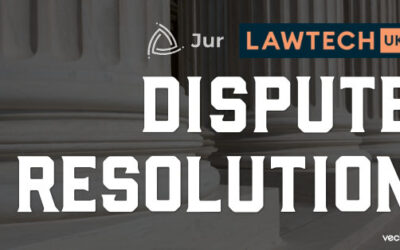
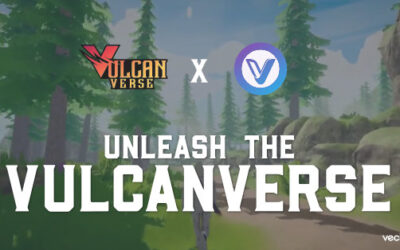


 VeChain’s public blockchain will be used to encourage citizens to become carbon neutral, by rewarding them with tokens (nicknamed ‘Greenies’) for activities such as public or electric transport, ride-sharing, low-energy and water consumption, solar power installation, and recycling. This system, aimed at tourists as well as citizens, will allow residents and visitors to redeem tokens for a number of goods, discounts, and additional services. This ecosystem will be developed by DNV GL, but will require the participation of a number of large corporations that have yet to be announced. Grottola also stated his belief that blockchain and circular ecosystems are essential for helping with the UN’s Sustainable Development Goals.
VeChain’s public blockchain will be used to encourage citizens to become carbon neutral, by rewarding them with tokens (nicknamed ‘Greenies’) for activities such as public or electric transport, ride-sharing, low-energy and water consumption, solar power installation, and recycling. This system, aimed at tourists as well as citizens, will allow residents and visitors to redeem tokens for a number of goods, discounts, and additional services. This ecosystem will be developed by DNV GL, but will require the participation of a number of large corporations that have yet to be announced. Grottola also stated his belief that blockchain and circular ecosystems are essential for helping with the UN’s Sustainable Development Goals.  Circular ecosystems, like the one shown in San Marino, are being developed by VeChain and DNV GL in other key regions, including China and some European nations. They have the ability to activate and engage citizens, providing incentives to meet the SDGs, rather than just relying on traditional government driven initiatives. Grottola concluded with a list of things DNV GL learned on their 2 year journey with blockchain. He stressed the importance of collaboration, and warned that the internal debates between “alt-coiners” and “one-coiners” was extremely detrimental to the entire industry. There was little doubt that among an international audience with many top industry leaders – few were anywhere near the level of DNV GL.
Circular ecosystems, like the one shown in San Marino, are being developed by VeChain and DNV GL in other key regions, including China and some European nations. They have the ability to activate and engage citizens, providing incentives to meet the SDGs, rather than just relying on traditional government driven initiatives. Grottola concluded with a list of things DNV GL learned on their 2 year journey with blockchain. He stressed the importance of collaboration, and warned that the internal debates between “alt-coiners” and “one-coiners” was extremely detrimental to the entire industry. There was little doubt that among an international audience with many top industry leaders – few were anywhere near the level of DNV GL.